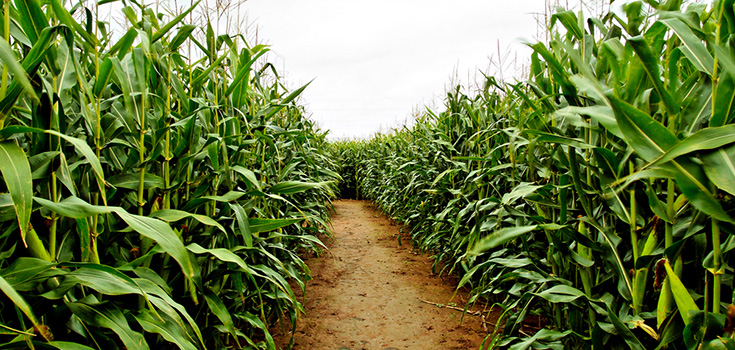Stealth GMOs Rapidly Consuming Global Food Supply

Obviously there is no room for GMOs in truly healthy food products, which is why it is truly vital that you understand the nature of GMOs and how they are oftentimes hidden in commercial food products. It may very well shock you to know just how prevalent GMOs are within the food supply. It’s truly amazing that modified products continue to go unlabeled despite being linked to organ damage — among a barrage of other conditions — in a prominent review of 19 studies.
In fact, nearly 93-95% of US soybeans are genetically modified in order to resist powerful weed-killers that were found to be killing the actual soybeans as well as the weeds. Following current trends, genetically modified food products will makeup the majority of the future food supply if a change is not made. For now, that change has been shot down by the FDA — the very organization tasked to defend public health. Just recently, the agency deleted around 1 million signatures from the GMO labeling campaign ‘Just Label It.’
This move means that consumers will continue to stay in the dark about whether or not what they’re eating is compromised of genetically modified ingredients. And it’s not just corn and soybeans, other commonly modified food staples include:
- Corn
- Cotton
- Soy
- Sweet corn
- Hawaiian Papaya
- Rice
- Potatoes
Statistics show how GMO crops and ingredients have skyrocketed in even the past few years. Here are some statistics:
- Genetically modified soybeans currently make up for 93-95% of the US soybean supply.
- Genetically modified corn currently makes up for 86% of the US corn supply.
- Genetically modified cotton currently makes up for 93% of the US cotton supply.
- Genetically modified Hawaiin papaya currently makes up for 93% of the Hawaiian papaya supply.
When viewing these statistics, it is easy to see how many consumers are being tricked into consuming genetically modified foods. Amazingly, in a poll conducted by ABC, more than 93% of Americans feel that products containing GMOs should be labeled – meanwhile, these individuals are actually unknowingly consuming GMOs on a daily basis.
What it comes down to is that as long as the threat is not visible, many consumers will simply purchase commercial products without thinking about the consequences. This is exactly why Monsanto and others have been squelching attempts to label products that contain GMOs.
This post is an excerpt from the ‘Genetically Modified Foods: How to Avoid & Identify’ section in my new book on natural health, The New Health Paradigm.

Umm… Canola is an oil made from rape seed and it is a dreadful oil to begin with. Soy oil, which is by far and away the most common oil used for deep frying, sauteing and as an oil for salad dressing in restaurants in the U.S. today followed by canola. Both are genetically modified and appear to cause sterility in those who consume them. Like corn and soy fed to livestock. Dealers try to make canola sound like a healthy oil. They are two separate products which were industrial oils to begin with. They,very likely in my opinion, were engineered for human consumption to generate chronic disease and infertility among those who consume them. It would be difficult to choose which has the most catastrophic effect upon human health. Use them if you have a death wish.
I have an allergy to both canola and soybean oils. I literally get tonsillitis when I eat canola oil and throw up when I eat soybean oil. They are both used in every restaurant, in baked goods, in granola, in darn near everything. I consider both bad news and inedible.
So what kind of oil is good to cook with? Does anyone know about hazelnut oil?
I can't do canola or soybean in general due to allergies as well. so forget about the oils. I have IBS. And anyone with IBS should avoid these along with heavy meats (acidic), and in many cases wheat, dairy and sugar. What a life!
So, can anyone please tell us what oil is ok to use?
I use peanut, olive oil (org. only), and coconut.
I cook everything without oil just because it is 100% fat anyway. It is easy to learn how to prepare food without using oils. Plus it contributes to too much Omega 6 intake when we need to have more Omega 3 and a more balance ratio between the two. This is what creates (among other things) inflammations.
I got a good stone pan (german made) which frankly makes oil unnecessary.
I use coconut oil, usually the organic cold pressed when I do not want a coconut flavor in my foods. I use organic virgin coconut oil for baked products.
I guess it's time to die. Anything we eat is taboo. Even when we think we bought organic.